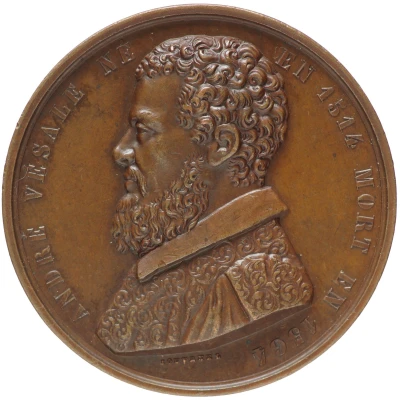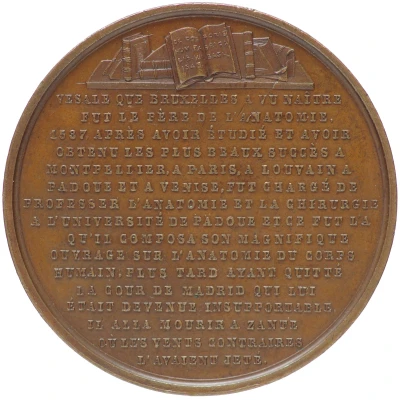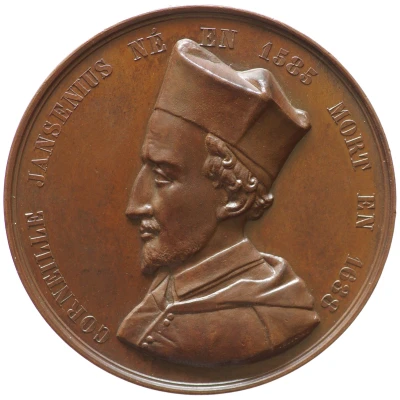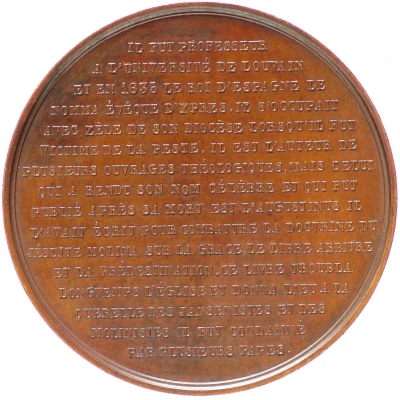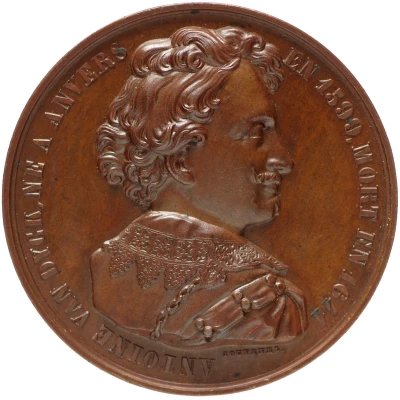
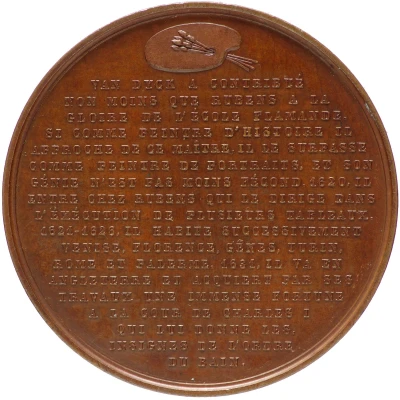

Médaille - Antoine Van Dyck ND
| Bronze | 42.1 g | 46.5 mm |
| Location | Belgium |
|---|---|
| King | Leopold I (1831-1865) |
| Type | Commemorative medals › Personality medals |
| Years | 1848-1850 |
| Composition | Bronze |
| Weight | 42.1 g |
| Diameter | 46.5 mm |
| Thickness | 5.8 mm |
| Shape | Round |
| Technique | Milled |
| Orientation | Medal alignment ↑↑ |
| Updated | 2024-11-12 |
| Numista | N#313489 |
|---|---|
| Rarity index | 97% |
Reverse
In the upper field, a painter's palette and four brushes.
The rest of the field is occupied by text.
Script: Latin
Lettering:
VAN DYCK A CONTRIBUÉ
NON MOINS QUE RUBENS A LA
GLOIRE DE L’ÉCOLE FLAMANDE.
SI COMME PEINTRE D’HISTOIRE IL
APPROCHE DE CE MAITRE, IL LE SURPASSE
COMME PEINTRE DE PORTRAITS, ET SON
GÉNIE N’EST PAS MOINS FÉCOND. 1620, IL
ENTRE CHEZ RUBENS QUI LE DIRIGE DANS
L’EXÉCUTION DE PLUSIEURS TABLEAUX.
1621-1626, IL HABITE SUCCESSIVEMENT
VENISE, FLORENCE, GÊNES, TURIN,
ROME ET PALERME. 1631, IL VA EN
ANGLETERRE ET ACQUIERT PAR SES
TRAVAUX UNE IMMENSE FORTUNE
À LA COUR DE CHARLES I
QUI LUI DONNE LES
INSIGNES DE L’ORDRE
DU BAIN.
Engraver: Adolphe Jouvenel
Edge
Plain
Comment
Antoine van Dyck was a Flemish Baroque painter and engraver, above all a portraitist, who was the leading painter at the English court, after achieving great success in Italy and Flanders, where he lived until the age of 21.In 1848, Adolphe-Christian Jouvenel engraved and published a collection of 25 bronze medals in ±46 mm modules, depicting portraits of "Belgium's great men". At the time, each medal was sold for 4 Belgian francs.
34 mm tokens in bronze or brass reproducing each of these medals were also engraved to, according to the prospectus of the time, bring this publication within everyone's reach, with a more democratic selling price of 50 centimes.
